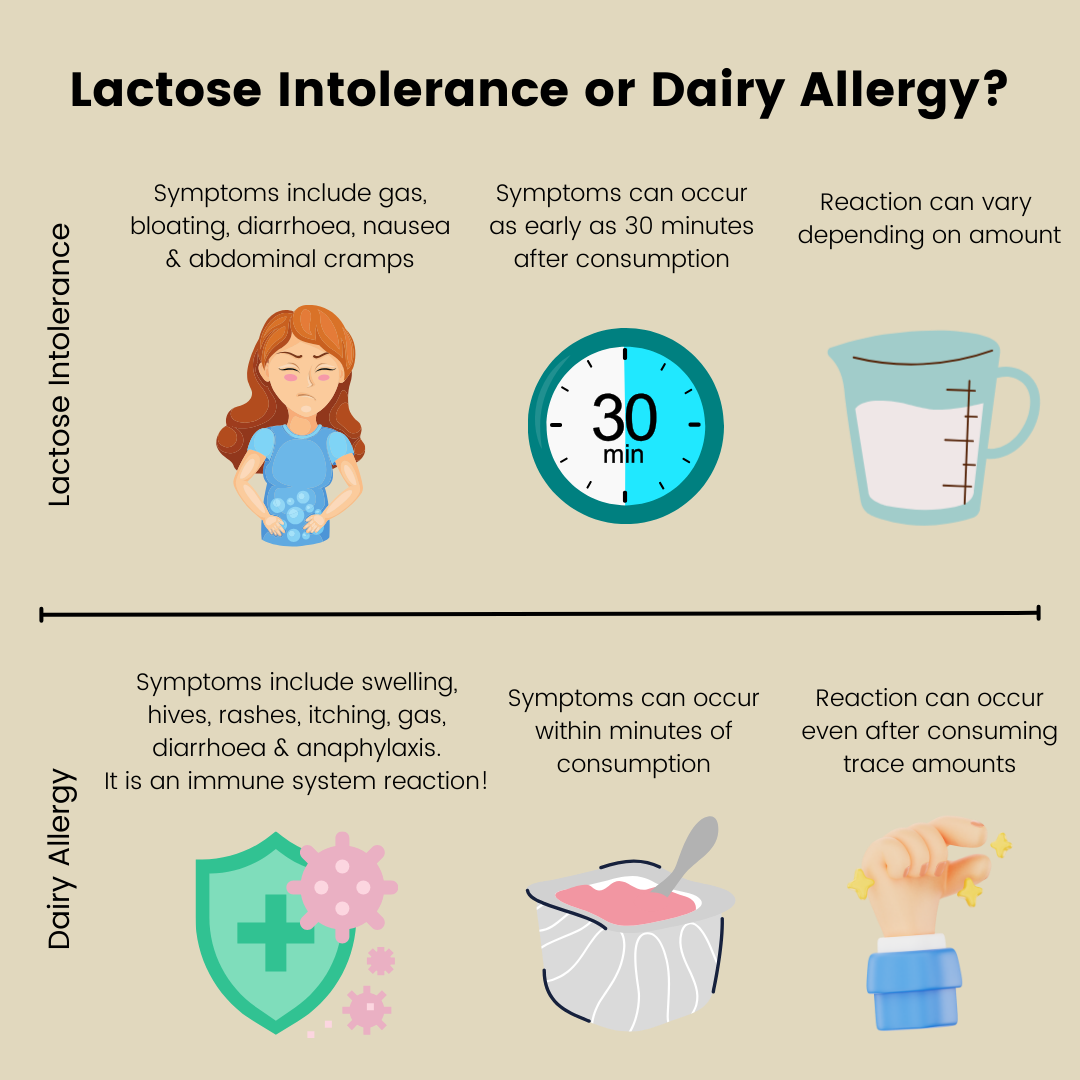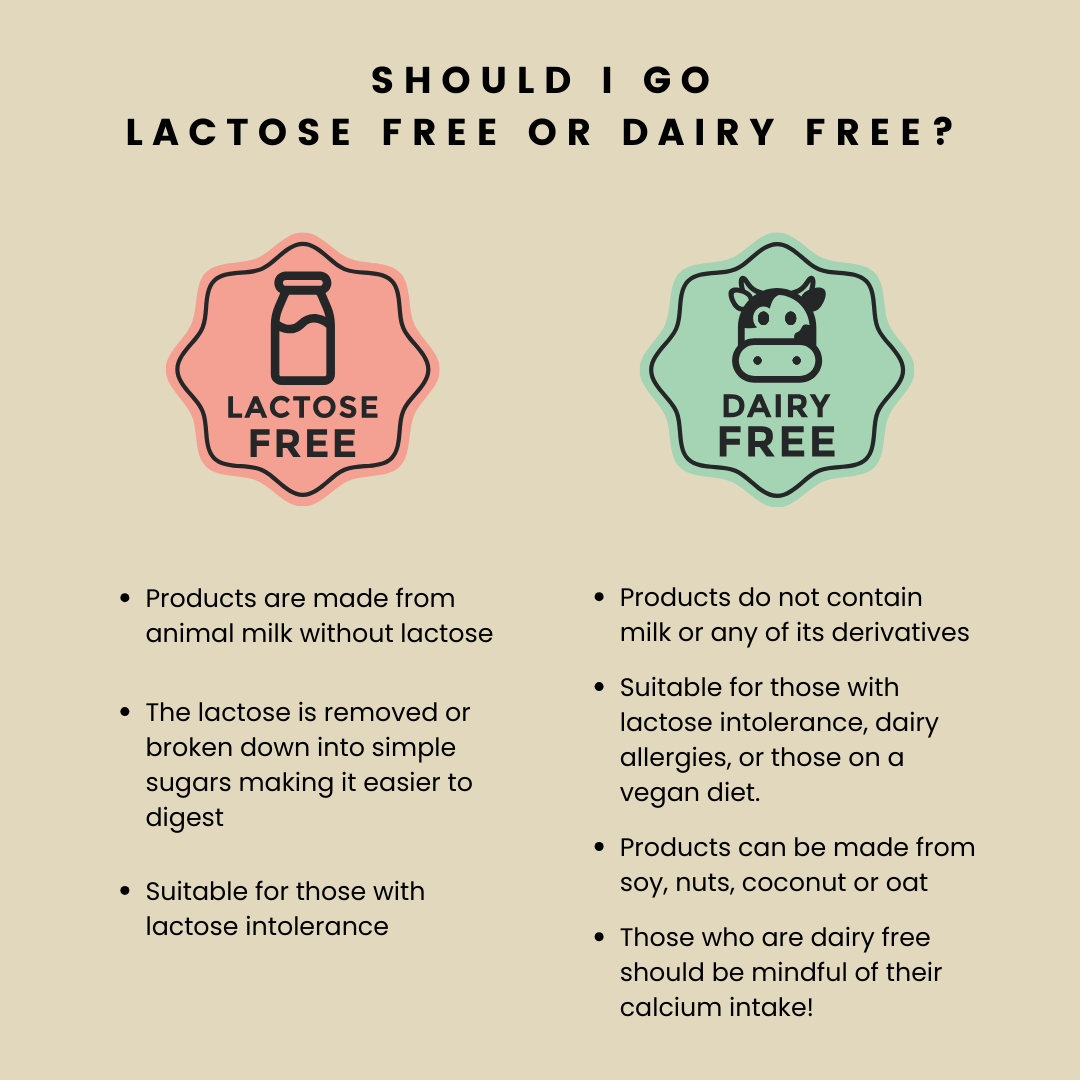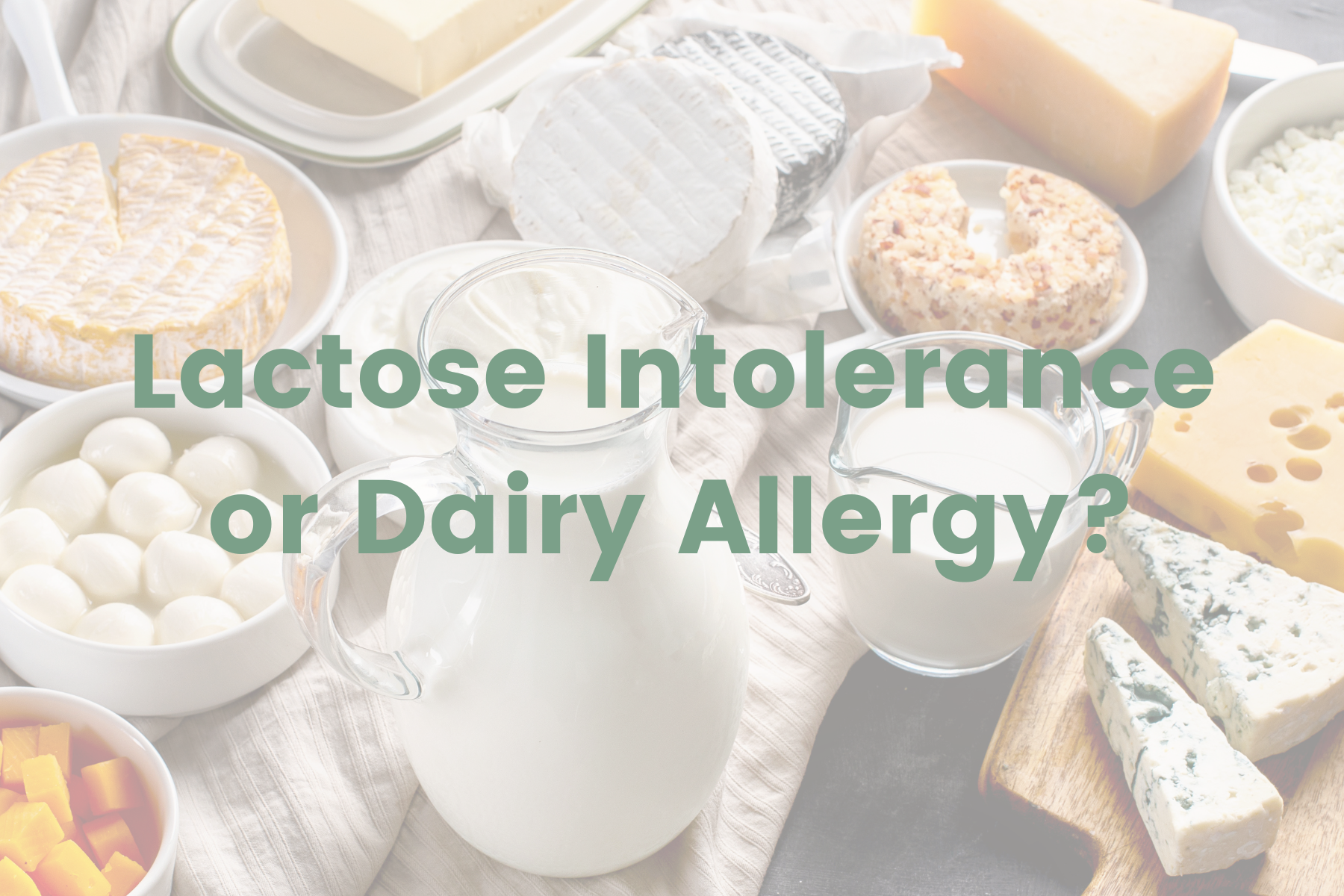There are many reasons why people are choosing to go dairy free - intolerances, allergies, ethical preferences, or just general dislike - but here, we’re going to focus on intolerances and allergies.
You’ve seen all the advertisements telling you to drink your milk because it will give you strong bones, but what happens when you can’t digest it?
Dairy proteins are found in products such as milk, cheese, cream, icecream, yoghurt and butter. Lactose is a sugar found in dairy products, formed by two simple sugars, glucose and galactose. When we consume lactose-containing products, the body produces an enzyme called lactase which assists in breaking down lactose in the body.
Lactose intolerance happens when the body does not produce enough lactase to digest the lactose. Instead, the unabsorbed lactose moves into the large intestine where it is digested by bacteria creating liquid and gases.
Lactose intolerance is often due to genetics, but it can be caused by or be a symptom of other medical issues such as gastroenteritis, Crohn’s disease or coeliac disease!
On the other hand, a dairy allergy, similar to Coeliac Disease, is an immune-based condition. Here, the immune system reacts to the protein in dairy as if it were harmful to the body. The sole treatment for this allergy is a strictly dairy free diet. It is important to read all ingredient labels (including things like medicine!) and exclude any containing dairy or dairy products, as even trace amounts can cause a reaction.
The differences in symptoms and reactions between lactose intolerance and milk allergies can be seen in the below infographic!

So what CAN you eat if you’re lactose intolerant or have a dairy allergy?
If you’re suffering from a lactose intolerance, be on the lookout for any products stating they are lactose free! These products are still dairy based, but the lactose has already been broken down into glucose and galactose, making it more gentle on your stomach and easier to digest.

For those with a dairy allergy, we’re very lucky to be living in a time where dairy free options are aplenty! Ensure you’re still getting your calcium from other sources though - check out our blog post on dairy free calcium for ideas!
If you struggle with either of these conditions and need some guidance, don’t hesitate to reach out to our expert team! You can also explore our fabulous dairy free range here - suitable for those who are both lactose intolerant AND dairy free!



